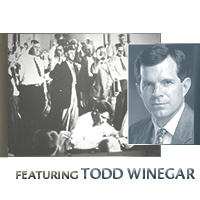 LTO E-filing - A Course on Legal & Practice Issues
LTO E-filing - A Course on Legal & Practice Issues
Course Date: October 4, 2004
Course Date: October 4, 2004
Trials of the Century
- why are they famous and what can we learn from them?
The Wilbur Coffin Case
One of the last hangings in Canada—a case in which guilt, innocence, and even whether a murder occurred is still disputed.
- justice depends on the quality of the attorneys and judge
- publicized cases create immense pressure on counsel and judges
- often, critical evidence is lacking, and justice must be decided on partial details, the best evidence available
O.J. Simpson Trial (1995): Cross-Examination Techniques
Observe the cross-examination of Mark Fuhrman by F. Lee Bailey.
- generally accepted principles of cross-examination
- adjusting and breaking the principles of effective advocacy to fit the circumstances
- techniques that can make a cross-examination great
See the cross-examination of Ellen Aaronson by Marcia Clark.
- how winning the battle can lose the war
Watch the carefully structured cross-examination of criminalist Dennis Fung.
- surprising the witness—victory is in the documents
Scopes “Monkey” Trial (1925): Cross-Examination Techniques
John T. Scopes’ trial for teaching evolution in public school.
- listen to the cross-examination of William Jennings Bryan by Clarence Darrow
- see the great guideline of cross followed
"Hissteria": Alger Hiss—Statesman or Spy? (1 hour in ethics)
- the ethics of dealing with difficult witnesses and counsel
Lunch (on your own)
"Hissteria" (cont'd)
Lindbergh Kidnapping Trial (1935)
- the "annihilating" cross-examination
- aggressive cross can be good—if you have the "goods"
The Nuremberg Trials (1945-1946): Cross-Examination of the Difficult Witness
See U.S. Supreme Court Justice Robert H. Jackson cross-examine Reich Marshall Herman Goering.
- methods of controlling the difficult witness
- appealing to the court when violations of control occur
Leopold and Loeb Trial (1924): Closing Argument Techniques
Listen to Clarence Darrow’s arguments and learn to “turn an argument”.
- take the same facts, but argue the opposite conclusion
- attribute the same motives to the opposing party
The People v. Clarence Darrow (L.A. Times Bombing Trial) (1911): Closing Argument Techniques
Watch Clarence Darrow’s closing argument in his own bribery trial.
- Darrow’s favorite arguments used in virtually every case
- putting your client in the white hat
- framing the issues
- flattery will get you everywhere
The Clinton Impeachment: Great Closing Arguments
- favorite arguments with a 21st century twist—great arguments have not changed over the years
What Was the Trial of the Century?
- learning from the trials of the century
Contributor(s):
Contributor(s):

